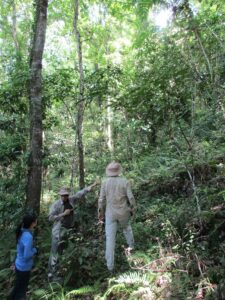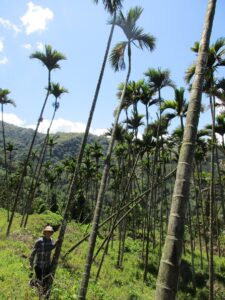From April 5th till April 9th , the three GIScience members Bernhard Höfle, Kristina Koenig, and Martin Hämmerle visited colleagues at the National Cheng Kung University (NCKU), Tainan, Taiwan, within the frame of the collaboration and exchange project 3D-TAIGER (‘Multi-Source 3D Geoinformation Extraction for Improved Management of Forest and Natural Hazards – Collaboration between TAIwan and GERmany’, with the NCKU represented by professors Chi-Kuei Wang (Dept. of Geomatics) and Ming-Chee Wu (Dept. of Earth Sciences)).
The kickoff meeting started with a day of presentations by professors Chi-Kuei Wang and Bernhard Höfle as well as the PhD students Kuei-Chia Chen, Chung-Cheng Lee, Kristina Koenig, and Martin Hämmerle. The talks were attended by professors Kai-Wei Chiang, Yi-Hsing Tseng, Chao-Hung Lin, Hone-Jay Chu, as well as further interested NCKU researchers and students.
The presentations covered a wide range of topics from an introduction to the studies conducted by NCKU at the Tseng-Wen reservoir to multi-source 3D geoinformation abstraction, challenges of capturing understory growth and landslide scarps from LiDAR data, point cloud-based vegetation investigation, and low-cost approaches for deriving 3D geoinformation. The participants engaged in lively discussions, carving out common interests and challenges to be tackled in the course of future co-operations.


To gain deeper insight into the site-specific challenges, a two-day field trip to Tseng-Wen reservoir followed up. On the first day, Kuei-Chia Chen introduced the group to selected forest sites which exhibit a high variety of vegetation in terms of species, followed by an itinerary with stops at various landslide sites of different size and process magnitude, guided by PhD student Huang Min-Lang at the second day.


Within the frame of the 3D TAIGER kickoff meeting, the opportunity of extended research stays was provided by NCKU to Kristina Koenig and Martin Hämmerle in order to start working on the common research topics.


